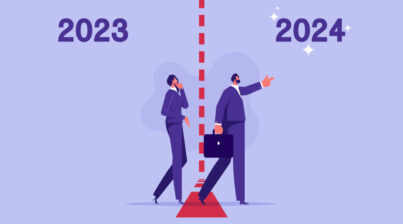Jason Chepenik, Senior Vice President Retirement & Wealth at OneDigital, joins us to discuss invaluable insights on the significance of a retirement plan in our rapidly evolving world.
About this episode
+ Bonus Tips & Insights from Employee Cycle:
Introduction:
Welcome to the Employee Cycle podcast, where we dive into HR trends, HR tech, and the ever-important topic of HR data. In this episode, we explore the relevance of retirement plans in today’s world. Retirement planning is a crucial aspect of financial security, and understanding its significance can empower individuals to make informed decisions about their future. Join us as we discuss retirement plans with Jason Chepenik, Senior Vice President of Retirement and Wealth at OneDigital.
The Importance of Retirement Plans:
Retirement plans serve as a blueprint for individuals to secure their financial future beyond their working years. The concept revolves around saving small portions of income throughout one’s career to ensure a comfortable life after retirement. Retirement planning is not limited to the wealthy or those nearing retirement age—it is an essential aspect of financial well-being for individuals of all ages.
The Evolution of Retirement Plans:
Historically, retirement plans took the form of pensions provided by employers, ensuring a guaranteed income for retirees. However, with changing economic landscapes and shifting responsibilities, companies gradually shifted away from defined benefit plans to defined contribution plans, such as 401(k)s. Defined contribution plans place the onus on individuals to save for their retirement and offer greater flexibility and control over their investments.
Understanding Social Security:
Social Security, introduced in the mid-1930s, acts as a safety net for individuals who reach retirement age without sufficient savings. While Social Security provides some financial support, it is intended to cover basic needs and cannot fully support a lavish retirement lifestyle. Relying solely on Social Security may not be enough to maintain the desired standard of living, especially considering the increasing life expectancy of individuals.
Access to Retirement Plans:
Many employers offer retirement plans, particularly those with over 100 employees, as part of their benefits package. These plans play a crucial role in attracting and retaining talent. However, smaller companies may not provide retirement plans, leaving individuals to navigate their retirement savings independently. In such cases, individuals can explore individual retirement accounts (IRAs) with the assistance of banks, brokerage firms, or financial advisors.
The Role of Employer Contributions:
While some employers provide matching contributions or profit-sharing, individuals should not solely rely on these additional funds. Employer contributions are subject to change based on the company’s financial situation, and individuals may change jobs, leading to potential disruption in their retirement savings. Instead, individuals should prioritize saving as much as possible on their own, treating employer contributions as a bonus rather than a primary source of retirement funds.
Portability of Retirement Plans:
One common oversight is neglecting to transfer retirement savings when changing jobs. It is crucial to carry over retirement funds from one employer’s plan to the next to ensure continued growth and management of investments. Most retirement plans allow for rollovers, ensuring that individuals can consolidate their savings and maintain control over their future financial security.
The Shift in Work Patterns:
As the workforce evolves, with more individuals working as contractors or in the gig economy, retirement planning becomes increasingly important. Without the traditional benefits provided by full-time employment, individuals must take the initiative to save for retirement independently. Freelancers and self-employed individuals can explore retirement account options tailored to their needs, such as solo 401(k)s or Simplified Employee Pension (SEP) IRAs.
Conclusion:
Retirement planning remains highly relevant in today’s world, where individuals have greater responsibility for securing their financial futures. Whether through employer-sponsored retirement plans or individual savings accounts, individuals must prioritize retirement planning at all stages of their careers. By understanding the importance of retirement plans and taking proactive steps towards saving, individuals can build a solid foundation for a comfortable and financially secure retirement.
How to find Jason Chepenik and Boon Health:
About OneDigital:
OneDigital is a leading company in the field of employee benefits and HR solutions. With a strong focus on innovation and technology, OneDigital helps businesses streamline their HR processes and enhance their employee experience. As a trusted partner, OneDigital offers a comprehensive range of services, including benefits consulting, compliance support, HR technology solutions, and retirement planning. Their team of experts provides personalized guidance and tailored solutions to meet the unique needs of each client. With a customer-centric approach and a commitment to delivering value, OneDigital empowers organizations to navigate the complex landscape of HR and employee benefits, ultimately helping them attract, retain, and support their workforce effectively.
Music credits:
About Employee Cycle:
Employee Cycle is changing the way HR leaders use data! We change their disconnected employee data into a user-friendly, centralized, and real-time HR Analytics Dashboard. We help companies view, track, and analyze their workforce data in one place. As a result, companies avoid risks, save costs, and increase their employee lifetime value.











